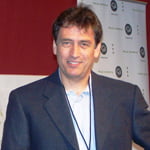by John DeBenedictis
If you do not enjoy teaching players and dealing with their issues, then you’ll have a harder time dealing with the parents. At the end of the year, are you saying to yourself, “thank god it’s over” or are you saying, “too bad it’s over”? I find that it’s the kids who drive me to coach and I enjoy making a difference in their lives.
As for the parents, I would need a full book to tell you what you might expect. I find that the higher you go in competitiveness, the more difficult it can get although having said that, you’ll always find that overly competitive parent at the recreational level. Most parents just want their kid to play the game and have fun. The most vocal parents tend to be the ones who are overly competitive themselves and usually have kids who are your better players or think that their kids are the better players.
As a head coach the best possible situation for you is to find assistants and managers who are not parents. Things can get interesting if you have a child on your team. Ignore what you think parents are saying because you won’t sleep nights. Be approachable so that if parents have something to say, positive or negative, they can tell you directly. The role of parents on your team will also depend on the age group you are coaching and the level of play that they are in.
If you need parents to help, you need to make it clear to them before the season starts as to what their role is on the team. Are you promising to play a player whose parent helps more or sponsors the team financially? Clear these up right away at a parent meeting. When setting team rules, discuss them with everyone. Whatever those rules are, make sure everyone knows them so that there are no problems afterwards. Make sure all parents know them.
I know that each coach will have their own personal needs from parents but if possible, try to find friends, students who are looking for coaching or managing experience, or alumni players who may want to help you. Try to avoid parents. You’ll probably have fewer headaches, more fun and need fewer drinks!
Thanks for Reading




